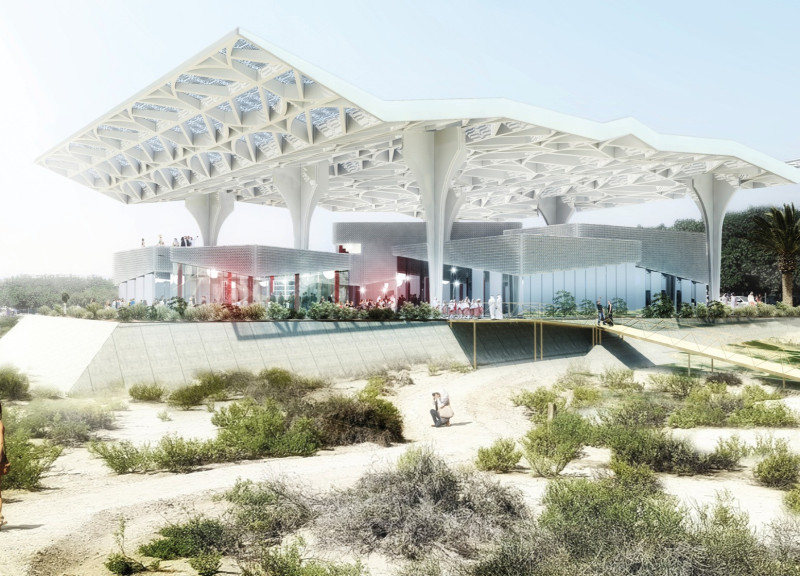5 key facts about this project
The Flamingo Visitor Center in Abu Dhabi is a thoughtfully designed architectural project that aims to enhance the relationship between visitors and the natural environment. This facility serves as a resource for education and community interaction, focusing on the local habitat, particularly the flamingos that inhabit the area. The center's architecture mirrors the natural influences of its surroundings, creating a seamless integration of built space and landscape.
The visitor center functions as a multifunctional hub, combining an information center, exhibition spaces, workshops, and recreational areas. It seeks to accommodate tourists, local residents, and educational groups, promoting awareness about local ecology and conservation efforts. The design prioritizes accessibility and transparency, allowing visitors to engage with both indoor and outdoor environments.
Unique Design Strategies and Approaches
The design approach of the Flamingo Visitor Center incorporates biomimicry principles, drawing inspiration from the physical characteristics of flamingos. The structural form mimics the elegant curves of a flamingo’s leg, resulting in an aesthetically pleasing silhouette that distinguishes it from conventional visitor centers. This organic shape not only serves an artistic purpose but also enhances functionality by creating shaded outdoor areas that align with the local climatic conditions.
Materials are selected for both structural efficiency and sustainability. Reinforced steel provides the necessary strength for the elevated design, while extensive use of glass maximizes natural light and offers stunning views of the surrounding landscape. Photovoltaic panels integrate renewable energy generation into the design, aligning the project's environmental goals with its architectural features. The use of modular shading panels further aids in temperature regulation, effectively reducing energy consumption.
Integration of Multi-functional Spaces
The layout of the Flamingo Visitor Center prioritizes flexible and adaptable spaces. The information center serves as the primary entry point, equipped with interactive displays and educational resources about local wildlife. The exhibition area features advanced technologies such as touchscreens and holographic displays, allowing for dynamic interactions with visitors. Surrounding these central spaces are training rooms designed for workshops and seminars, providing opportunities for community-led initiatives and educational programs.
The café and restaurant located within the center not only enhance visitor experience but also encourage social interaction. By providing local cuisine, it fosters a sense of community and connection to the regional culture.
For an in-depth exploration of the architectural plans, sections, and design ideas that form the foundation of the Flamingo Visitor Center, readers are encouraged to delve into the project presentation. This resource offers a detailed look at the project’s comprehensive design strategies and environmental considerations, providing valuable insights into its development.






















































